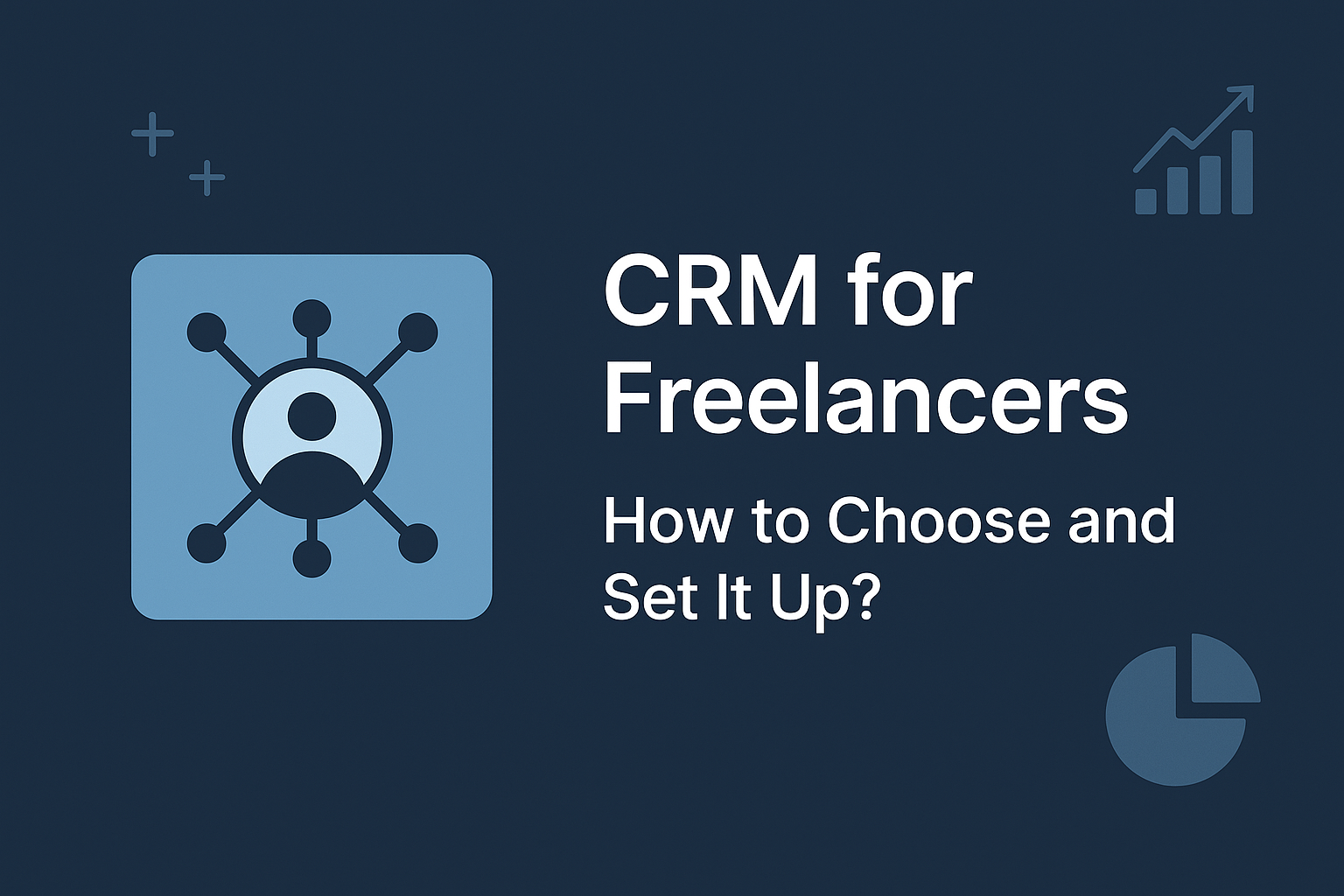
aceFreelance, Freelancer or Solopreneur, you often have to juggle prospecting, customer follow-up, quotes, invoices and reminders. As a result, information is lost, and some opportunities are missed.
Exactly to avoid this that a CRM (Customer Relationship Management) becomes useful. But faced with the multitude of tools available, how to choose the right one, and especially how to set it up without drowning in it?
Even if you're not a big company, a CRM can transform the way you work:
👉 A CRM, even simple, is a Lever for professionalization For any self-employed person.
Before comparing software, clarify what you want:
A CRM that is too complex is counterproductive. For a self-employed person, a solution is better Intuitive and lightweight than an oversized tool like Salesforce.
Your CRM should easily connect to your other tools: emails, calendar, calendar, Stripe, Notion, Zapier, etc.
Some CRMs are free (HubSpot Free, Zoho CRM Free), others cost a few dozen euros per month (Pipedrive, Monday.com, Capsule CRM). The Important Thing: a Positive ROI from the first few months.
Most CRMs offer a free trial. Take the opportunity to check if the tool really corresponds to your use.
Start by grouping all your current data (emails, spreadsheets, notes) and importing it into your CRM.
Define the steps through which a prospect goes (e.g.: contacted → quote sent → signed).
Schedule automatic reminders to follow up with your prospects, or connect your CRM to your billing tool.
Block 30 minutes per week to analyze your KPIs (conversion rate, new customers, generated sales).
A CRM Helps You Manage Your Customers and Opportunities. But to manage the rest — cash, invoices, invoices, invoices, invoices, quotes, contracts, payments — you need a Center cockpit.
👉 That's exactly what's on offer Klark :
By Combining CRM + Klark, you gain a clear vision of your business On the customer side And On the Financial Side.
For a freelancer, setting up a CRM is not a luxury, but a key step for Structure your business and gain efficiency.
The important thing is not to choose the most complete tool, but the one that corresponds to Your Real Needs and that you will actually use.
And by combining it with a cockpit like Klark, You Go from Artisanal Management to Management Professional and centralized.

Yes, even with few customers, a CRM helps organize and track opportunities effectively.

The most suitable are HubSpot Free, Pipedrive, Zoho CRM or Capsule CRM for their simplicity and affordability.

Choose a simple tool, start small (contacts + pipeline) and add features as you go.

The CRM manages your customers, Klark manages your finances and your administration. Together, they offer complete management of your business.